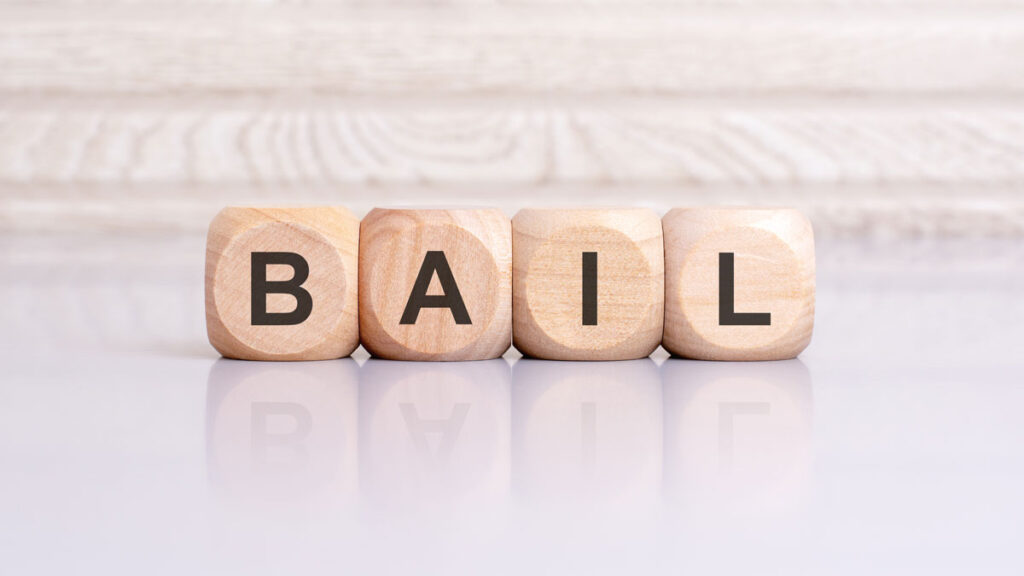
Summary:
Bail bondsmen make money by charging a non-refundable fee, typically around 10% of the bail amount, for posting bail on behalf of defendants. They risk losing the bail amount if the defendant fails to appear in court.
Main Points:
- Bail bondsmen post bail for a fee, usually 10%
- They risk losing money if defendants skip court dates
- Bounty hunters may be employed to recover fugitives
- Fees and regulations vary by state
- Cash bail is not handled by bail bondsmen
When someone is arrested and needs to post bail, they have a few different options for how to get the money. They can either:
- Pay the full amount of the bail themselves
- Use a bail bond agent to post the bail on their behalf, or
- Use a credit card to get a cash advance
When someone chooses the bail bondsmen route, one question that often arises: How does a bail bond make money? And, more importantly, how does a bail bondsman get their money back?
In this blog post, we’re reviewing how bail bond agents make their money.
How Do Bail Bondsmen Work?
Bail bond agents, also called surety agents, provide bail for people who have been arrested, as Cornell Law School explains. The agent pays the full amount of the bail to the court on behalf of the defendant. Crucially, the bond agent also charges a nonrefundable fee for this valuable service.
The fee is typically around 10 percent of the total bail amount, but can be more or less depending on the state. For example, in California, the fee is set at 10 percent, while in Colorado it’s 15 percent.
The agent will then keep any collateral that was put up by the defendant or their cosigner to secure the bond. If the defendant fails to appear for their court date, the agent has the right to bring them back into custody and recover their losses.
So, how does a bail bondsman work? Their day-to-day activity centers on a very specific type of finance. Bail bond agents pledge the money needed to pay bail. That is often an amount that defendants don’t have or would cause major financial difficulty to lose, even temporarily.
The role of a bail bond agent is to help people who are accused of crimes — people who are all innocent until proven guilty — reduce the disruption to their lives and exit custody before their trial.
How Much Does a Bail Bondsman Make?
One common question about the bail bonds industry is, “How do bail bondsmen make money?” The income of a bail bond agent largely depends on the number of clients they serve and the bail amounts they cover.
One thing is consistent for most bail bond agents: The process by which they earn an income. This money serves as a salary and helps to keep their businesses open and continue helping the accused.
Bail bond agents earn money by posting bail on behalf of defendants who are unable to pay the full amount themselves. In exchange for this service, the bail bond agent charges a fee, typically a percentage of the bail amount.
For instance, if a bail bond agent is handling a case where the court has set bail at $50,000, and they charge a 10% fee, the agent would earn $5,000 for successfully posting bail and ensuring the defendant’s release from custody. This fee is non-refundable, even if the defendant appears for all their court dates, making it the primary source of income for the bail bondsman.
The earning potential for a bail bondsman can vary significantly based on factors like geographical location, the number of clients they serve, and the average bail amount in their operating area.
Additionally, the financial risks involved in paying the bail for clients, especially in cases where defendants fail to appear in court, can impact the overall profitability of a bail bondsman’s business.
Bail bond agents risk losing the full amount of bail if their clients do not return for their court dates. This is a major financial risk that needs to be addressed by a bail bond company’s fee structure and overall approach to operations.
How Do Bail Bondsmen Make Money?
Bail bondsmen and bail bonds companies make the most of their money by charging a fee on top of bail bonds.
Most bail bondsmen charge around 10 percent of the amount of bail money to cover the full amount in court. For example, if bail is set at $100,000, the bonding agency will charge a $10,000 down payment before paying the bail.
This down payment acts as a premium charged to the defendant or cosigner. That premium represents the bail bond agent taking on the risk of making sure the defendant appears in court.
The bail bonds industry is regulated by each state, so how much money an agent can make varies from place to place. Check your local state laws to find out how bail bondsmen make money in your state.
How Do Bail Bondsmen Lose Money?

If a defendant skips bail, the bondsman has to track them down, bring them back into custody, and recover their losses. This is why it’s important for agents to do a thorough background check on all of their clients before agreeing to write a bond.
If a bail bondsman is unable to recover the money they’ve put up, they can lose a lot of money. For every 10% upfront fee of $5,000, for example, a bail bond agent risks $50,000 of their own funds. Agents need to have a good understanding of their state’s laws so they don’t end up taking on more risk than they can handle.
In the criminal justice system, when a defendant fails to appear in court, bail bondsmen often employ bounty hunters to locate and return the fugitive. This process is an added cost to the bail bondsman, who has already paid the full amount of bail money to the court.
If the bounty hunter is successful, the bondsman can recoup some losses. If not, the bondsman is left with the financial burden.
This risk is a significant factor in the bail bonds business. Failing to recover and pay the full bail amount from the defendant or through other means can lead to substantial financial losses.
Understanding these dynamics is crucial for bail bondsmen to effectively manage their risks and maintain their role in the criminal justice system.
Does a Bail Bondsman Get Involved in Cash Bail?
No, a bail bondsman typically does not get involved in cases where cash bail is directly posted by the defendant or their family.
In a cash bail situation, the defendant or someone on their behalf pays the full amount of bail directly to the court. This payment serves as a guarantee that the defendant will appear for their court dates. If the defendant meets all the requirements set by the court, the cash bail is usually refunded.
In these cases, the services of a bail bond agent are simply not needed. The defendant, their friends, or their family post the required amount of bail directly.
On the other hand, a bail bondsman is involved when the defendant cannot afford to pay the full amount of bail. In such cases, the bail bondsman posts bail on behalf of the defendant in exchange for a fee (usually a percentage of the bail amount), and potentially collateral, to secure the bond.
This service is particularly valuable for those who cannot afford the cash bail amount or prefer not to tie up significant funds in the court system while awaiting trial. Depending on the amount of bail required, it can be very common for defendants to not have access to the funds needed for cash bail.
Get Your Bail Bond Today!
When you work with a bail bondsman, you can be sure that you’re working with someone who knows the ropes and can help get your loved one out of jail fast. We understand how stressful this time can be, and we’re here to help.
To get professional help within minutes, contact the bail experts at My Bail Hotline. We’re here throughout California to help you with any bail issue, and we offer flexible payment plans at affordable rates. Contact us today!